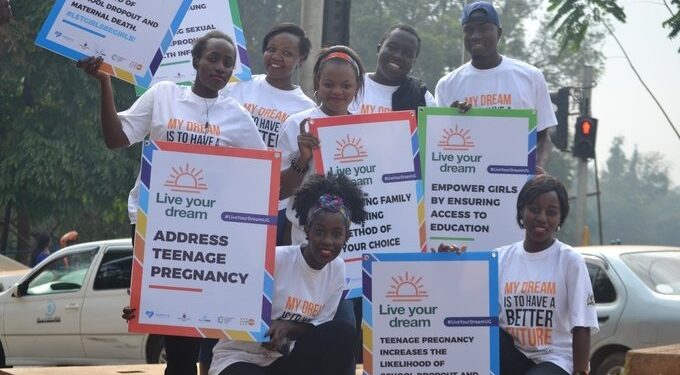By Elizabeth Ampairwe
The Prime Minister Robinah Nabbanja on September 15th launched the Second Roadmap for Sustainable Development Goals (SDGs) which highlighted the actions by government to attain the goals by 2030. This was an important event precisely because it is imperative for the state to share and show its direction in respect of these important global commitments that our country’s planners have further adopted in the national development plan and other policy frameworks.
The Sustainable Development Goals (SDGs), also known as the Global Goals, were adopted by the United Nations in 2015 as a universal call to action to end poverty, protect the planet, and ensure that by 2030 all people enjoy peace and prosperity.Government of Uganda has demonstrated commitment to the spirit and letter of the SDGs so much so that we even have, under the Office of the Prime Minister, a secretariat established, to coordinate implementation efforts for all stakeholders including government, United Nations, civil society, private sector and academia in achieving the goals.
It is against this backdrop that I invite the government of Uganda to pay keen attention to SDG 3 on good health and wellbeing, SDG 4 on education for all and SDG 5 on gender equality and empowerment of women and girls as the prime minister’s office embarks on the second road-map for the SDGs. This comes as a dark cloud of uncertainty continues to hover over the fate of some five million learners that have been effectively under lock and key for the past two years following the closure of schools to curb the spread of the deadly corona virus.
One of the terminal consequences of the continued school closures has been a steep upsurge in cases of teenage pregnancies and child marriages. The statistics speak for themselves. According to figures presented in Parliament on April 8th 2021, 296,314 girls aged between 10 and 19 years were reported to have had their first antenatal care clinic visits between March and December 2020.
Districts like Maracha, Mayuge and Yumbe reported an increase of 22%, 33% and 10.5% in teenage pregnancy, respectively, during the same period. The school closures triggered by the Covid-19 pandemic exacerbated an already horrible situation because Uganda has one of the highest rates of teenage pregnancies in Sub-Saharan Africa with over 25% pregnancies among teenagers registered every year, according to figures presented in Parliament and the Uganda Demographic Health Survey report, 2016.
Before the Covid-19 pandemic struck, 36.5% of women aged between 18 and 22 years were reported to have been married off before the age of 18 years and one in every ten girls married off before the age of 15.
The districts of Rakai, Bukomansimbi, Gomba, Luweero, Mityana and Mubende reported teenage pregnancies of 128, 167,196,12944,3200 and 1072 child marriages respectively.
On a global scale, Uganda is ranked 16th among 25 countries with the highest rates of child marriages, according to the United Nations Children’s Fund (Unicef).
Put simply, as a country, we are on a sad trajectory and if we still harbour any faint hopes of achieving the SDG targets by 2030, the Government must make deliberate efforts to address the spiraling cases of teenage pregnancies and child marriages. The president has been quoted in the media arguing that teenage pregnancy is better than death (from Covid). I see where President Yoweri Museveni is coming from and the reservations he and his government have had for not opening schools until the set vaccination target is met seem to come from a good place. However, I invite the president to reflect deeply on the catastrophe that is going to befall the country with the grim reality of teenage pregnancies and early marriages. Not only are these young women and girls going to lose their chance at going to school (defeating the essence of education for all) and efforts to close the gender gap, but also, their human capital development and general health and well-being is imperiled. Closely associated with this is the vicious cycle of poverty, which renders harnessing the demographic dividends a futile effort in addition to not being able to deliver on the sustainable development goals by 2030.
At the Forum for Women in Democracy (Fowode), we are of the considered view that gender equality and inclusive development cannot be achieved if the girl child is wasting away because of teenage pregnancies and child marriages. Somehow, the planners of our country just have to find a way of striking the balance between public health concerns and the tragedy of the effects of locking girls out of school. Our neighbours in the region offer good lessons for what is possible. A society that does not invest in ensuring the well-being of the girl child is a society that has mortgaged its future.
More fundamentally, it is an abdication of government’sconstitutional requirements because Article 31(1) of the 1995 Constitution prohibits child marriage while article 34 (4) stipulates that children are entitled to be protected from social or economic exploitation and shall not be employed in or required to perform work that is likely to be hazardous or to interfere with their education or to be harmful to their health or physical, mental, spiritual, moral or social development.
Government is also a signatory to the Universal Declaration of Human Rights; the Convention on the Rights of the Child and the Convention on the Elimination of All Forms of Discrimination Against Women-all of which are very explicit on rights of children and women.
As we come close to the second year of school closures, there are some uncomfortable questions that technocrats at the Ministries of Education and Health have to answer.
Why have Kenya, Rwanda and Tanzania maintained their schools open while ours remain closed? What are they doing right that we are doing wrong?
Suffice to note that in Kenya, for instance, the Covid-19 mortality rate is higher than that of Uganda but at least not the worst on the continent.
As a way forward, the government, through the Ministry of Gender, Labour and Social Development, should implement the National Strategy to End Child Marriage and Teenage Pregnancy.
As a way of alleviating an already ill state of affairs, the Ministry of Education should develop policies and programmes that allow and support teenage mothers to return and stay in school as well as sensitizing the communities against stigmatising them.
Government should also strongly enforce laws on child marriages and all forms of child sexual exploitation.
The National Schools Health Policy, a comprehensive guide on how students can access health services should not remain on paper but must be passed and adopted in schools. Short of this, we shall have lost a generation. Let’s organise not agonise.

Elizabeth Ampairwe is the Director of Programs at the Forum for Women in Democracy.









